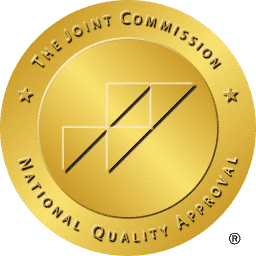What Is Demerol?
Demerol (also known as Meperidine Hydrochloride) is an opioid analgesic medication that is used to treat or relieve moderate to severe pain. It’s one of the narcotic medications that you can only purchase with a prescription from your healthcare professional, doctor, or pharmacist. It functions similarly to morphine and is commonly used to treat a patient before or while they undergo surgery. Outside of surgery, they are only prescribed if alternative treatment options such as non-opioid medication do not relieve a patient’s pain or discomfort.
Demerol is a strong medication and should not be used beyond the advice of a healthcare professional. All patients are still at risk for opioid addiction and substance abuse even if the recommended dosage is taken, due to the possibly high level of physical dependence on the drug. Use with care.
How Is Demerol Used? – Prescription Drugs for Severe Pain

Demerol is prescribed to a patient to treat acute pain and chronic pain. There are two ways in which Demerol can be administered to a patient. It can either be given orally or through a Demerol injection.
Use the appropriate dosage for each form of medication. Do not consume a missed dose if it is almost time for your next dosage. Only take one dose at a time to reduce the risk of side effects or opioid overdose.
Demerol Vial
The Demerol vial is used by injecting the medication into the vein, a muscle, or beneath the skin, depending on the advice of your doctor. It can be administered at home or done professionally during an in-person session. The dosage will be set but can be adjusted depending on patient response, once approved by your attending doctor or pharmacist. Please avoid making any changes to the dosage or using Demerol more than needed to lower the risk of side effects. Patients may discontinue use upon the instruction of their doctor.
If using the drug at home, you must consider all precautions and inject the medication slowly to avoid inducing any unnecessary side effects. Always inspect the vial before use. If the Demerol vial shows any signs of discoloration or contains loose particles, discontinue use immediately.
The injection must be given slowly and carefully. If it is injected into the body too quickly, the patient may suffer severe side effects. Dizziness is a common side effect during the procedure, so we recommend the patient to relax or lay down as the Demerol vial is being injected into their body. Avoid injecting in the same area if you are injecting the meperidine hydrochloride into the muscles or beneath the skin, as it may cause further pain and injury.
Demerol Tablets
Demerol tablets are taken orally. They are prescription drugs that must be taken every 3 or 4 hours, depending on your doctor’s prescription and recommended dosage. Some patients may experience nausea or feel lightheaded after ingesting Demerol tablets, so we recommend taking the medication after eating. However, it is safe to ingest with or without eating first. If nausea persists, tell your doctor and ask for alternative treatment or advice.
The tablets are also available in liquid form. Prepare the correct dose using a measuring spoon. Kindly avoid using household spoons to avoid incorrect doses. Once measured, mix the liquid Demerol into a half-full glass of water to prevent the medication from inducing numbness on your lips. It should be about 4 ounces or 120 mL. Consume immediately.
Always stick to the recommended dosage and prescription by your doctor. Avoid using the tablets more than necessary to prevent further side effects, discomfort, or accidental overdose.
Side Effects of Demerol

Demerol may induce several side effects upon ingestion or injection. Signs of nausea, constipation, vomiting, lightheadedness, dizziness, and sweating are all common symptoms of Demerol use. If these symptoms persist or become unbearable, call your doctor right away to receive alternate options or other drugs. Demerol usually does not cause severe side effects within a patient’s body.
Constipation may be prevented by the intake of sufficient dietary fiber and water. Exercising may also help in relieving any discomfort caused by the drug. If the constipation is unbearable, consider using a laxative. Make sure to ask your doctor or pharmacist before use.
Dizziness, nausea, and lightheadedness are best prevented by moving carefully and slowly. Do not sit up or rise abruptly if you were previously sitting or laying down.
When To Seek Medical Attention

Tell your doctor immediately if you are experiencing any of the symptoms below:
- Breathing problems
- Severe constipation
- Severe drowsiness
- Unusual tiredness
- Seizures and fainting
- Loss of appetite and weight loss
- Abdominal pain
- Hallucinations, mood changes, and confusion
- Tremors
- Visual impairment
Warnings

There are certain risks involved in taking Demerol. However, doctors mainly prescribe Demerol to treat a patient once they are certain that there are more benefits than risks.
Prescription for Demerol must only be limited to patients who have no alternative options and have not been provided adequate analgesia. This is because Demerol is a schedule II controlled substance, which means it has a high risk of addiction.
An allergic reaction to Demerol is rare but not completely impossible. Consult or tell your doctor right away if you’re experiencing any signs of an allergy, including a rash, unbearable itchiness, breathing problems, swelling in the face, tongue, and throat, or severe dizziness.
Taking Demerol during pregnancy is not recommended, as infants are sensitive to the drug. The baby may experience life-threatening withdrawal symptoms once they are born.
Ingestion or use of Demerol may also affect serotonin levels and subject a patient to serotonin syndrome. This may cause a patient to experience dizziness, headaches, tremors, and an increased risk of other symptoms occurring. Cases of this condition are rare. However, we recommend calling your doctor or requesting emergency medical help if these symptoms occur or worsen over time.
Other possible side effects that are not included in this article may appear. If you notice anything unusual or continue to experience discomfort, seek medical attention right away.
Drug Interactions

An increased risk of side effects may occur if Demerol is taken with other drugs. If you’re currently taking other medications, create a list and show it to your attending doctor or pharmacist to confirm if it is safe for you to take Demerol. Avoid taking Demerol or changing the dosage of your medication without your doctor’s advice or approval.
Avoid using Demerol with the following medications and drugs:
- Butorphanol
- Nalbuphine
- Pentazocine
- Naltrexone
- Samidorphan
- Isocarboxazid
- Linezolid
- Metaxalone
- Methylene blue
- Moclobemide
- Phenelzine
- Procarbazine
- Rasagiline
- Safinamide
- Selegiline
- Tranylcypromine
Demerol may also cause negative effects if it is taken while a patient is currently undergoing other pain relievers such as alcohol, medical marijuana, sleeping pills, muscle relaxants, antihistamines, cough relievers, and central nervous system (CNS) depressants.
Mixing Demerol with these medications may cause dire symptoms such as severe drowsiness, dizziness, slow breathing, and other breathing problems. Do not drink alcohol or use other medication unless it has been approved by your attending doctor or medical professional.
If you have ever been diagnosed with or have experienced kidney disease, sleep apnea, mental illness, drug addiction, sickle cell anemia, or urination problems, tell your doctor before receiving your prescription.
Demerol Addiction

Patients who are prescribed Demerol are prone to drug abuse and substance use disorder. This is because Demerol is an opioid that produces a euphoric and pain-relieving effect that is similar to other substances like morphine. Addiction or abuse is also commonly seen in patients who increase their dosage or use the medication more frequently than directed. This results in physical dependence on the drug and unpleasant withdrawal symptoms once they discontinue use.
Causes and Risks of Demerol Addiction
Demerol addiction and abuse can be caused by several things. Patients that have developed an addiction may have been influenced by a close family member who has a history of substance abuse. Aside from peer influence and genetics, stress is also a common contributor to Demerol addiction, as patients eventually grow dependent on the euphoric high and temporary relief that they receive as they take their dosage. This occurs mainly in individuals who have no other form of stress relief or coping methods.

Those who are suffering from Demerol addiction are said to be impulsive. It’s also possible that they were exposed to stressful situations that caused them to be reliant on prescription or street drugs. Those who have experienced trauma, poverty, or early exposure to substance abuse are at high risk for Demerol addiction. Family history of other conditions such as mental illness and conduct disorder during childhood are also common risk factors for addiction. Even patients who have been prescribed Demerol for illnesses or injuries are at risk for addiction, as the drug induces strong pain-relieving effects that they may become fully dependent on.
Symptoms of Demerol Addiction
If you or another individual are experiencing the following symptoms, contact a medical professional immediately. These are the most common signs of Demerol addiction.
Behavioral Symptoms
Patients that have become addicted to Demerol may exhibit unusual behavior. They will attempt to acquire multiple prescriptions by visiting several doctors or taking another person’s Demerol prescription. They will also use the drug more often than necessary and will likely abuse it after experiencing negative effects due to their addiction. These individuals will begin to neglect their responsibilities (academic, occupational, or personal) to use the drug or recover from its effects. Individuals who are suffering from addiction are also impulsive, distant from their loved ones, and may act recklessly.
Cognitive and Psychosocial Symptoms
Individuals who have developed a Demerol addiction will have a hard time focusing or concentrating on a certain task at hand. They will also experience memory problems, confusion, or disorientation. These patients may also exhibit a lapse in judgment, which is why they tend to make reckless decisions or act impulsively.
In the psychosocial aspect, patients suffering from Demerol addiction may act aggressively, have a short temper, or experience frequent mood swings. Depression is also a common symptom of addiction. Individuals may act distant and reserved due to their condition, eventually losing interest in their hobbies, responsibilities, or anything they enjoyed in the past.
Physical Symptoms
Patients may experience several health issues. These individuals may suffer from respiratory issues (such as respiratory depression), urinary retention, weak or rigid muscles, constipation or other digestive issues, dry mouth, and insomnia. Those who are suffering from Demerol addiction may also display a lack of appetite, which may contribute to major weight loss or further decline in their health.
Withdrawal and Demerol Overdose

Withdrawal Symptoms
Once an individual has become physically dependent on Demerol, they may experience some unpleasant symptoms when they discontinue the use of the drug. Symptoms of withdrawal include nausea, vomiting, insomnia, depression, diarrhea, cramping, and abdominal pain. Patients undergoing withdrawal will also experience fever-like symptoms, such as heavy sweating, runny nose, and a fever. They will likely be agitated and have an overwhelming craving for Demerol as well. Seeking help during withdrawal is highly encouraged. Proper rehabilitation and medical guidance can help an individual avoid withdrawal symptoms.
Overdose Symptoms
Once an individual has overdosed on Demerol, they will most likely suffer from extreme disorientation, fainting, palpitations or irregular heartbeat, breathing issues, extreme drowsiness, and a concerning drop in blood pressure. If left untreated, patients who have overdosed on Demerol may experience severe and life-threatening effects, such as a coma or death.
If you’re struggling with a Demerol addiction or need further help, please don’t hesitate to get in touch with CarePlusNJ today.
References:
Demerol Injection | Web MD
Demerol Oral | Web MD
Demerol | Drugs.com

CarePlus NJ, INC. is dedicated to excellence in mental healthcare and has a commitment to life-long support needed by individuals and their families to ensure that they achieve their full potential and improve the quality of their lives.









